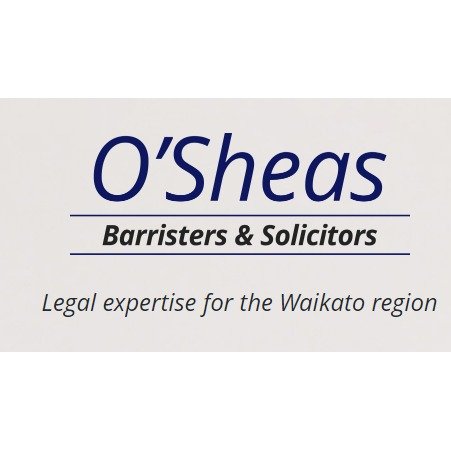Best Constitutional Law Lawyers in Hamilton
Share your needs with us, get contacted by law firms.
Free. Takes 2 min.
List of the best lawyers in Hamilton, New Zealand
About Constitutional Law in Hamilton, New Zealand
Constitutional law in Hamilton refers to the legal framework that the New Zealand government functions within. It draws its essence from several legal and non-legal documents including the Treaty of Waitangi, Statutes of New Zealand, English common law, constitutional conventions and Letters patent. New Zealand's constitutional law focuses on the legal structure of the government, its powers and functions, the methods by which these powers can be exercised and the rights of citizens.
Why You May Need a Lawyer
Legal advice in constitutional law can be needed in a variety of situations such as public affairs, interpretation of constitutional texts, or human rights issues. If you're involved in a legal dispute that involves the operations of the Government, dealing with issues related to the Treaty of Waitangi, or facing any legal matter which questions the interpretation of the rights and duties prescribed under the constitution, you may need a lawyer specializing in constitutional law.
Local Laws Overview
Local laws in Hamilton work in congruence with national laws. The Local Government Act 2002 grants local authorities specific law-making powers, enabling them to make bylaws for their district. The local laws can note the specific approach to the administration, governance, and financial management of the district.
Frequently Asked Questions
1. Does New Zealand have a written constitution?
New Zealand does not have a single codified constitution. Instead, the constitutional principles and rules are embedded in various statutes, case laws and other legal instruments.
2. What role does the Treaty of Waitangi play in New Zealand's constitutional law?
The Treaty of Waitangi plays a significant role in the understanding of New Zealand's constitutional law. The principles of the Treaty help in shaping the relations between the Crown and Māori, providing a bicultural framework.
3. How can a constitutional lawyer help me?
A constitutional lawyer can provide legal advice, advocacy, negotiation, interpretation on constitutional matters, represent you in court, and protect your rights when they're intertwined with the constitution or governmental laws.
4. Are human rights protected under the New Zealand constitution?
Yes, human rights are protected under the Bill of Rights Act 1990 and Human Rights Act 1993. The Treaty of Waitangi also protects the rights of the Māori people.
5. Can local authorities in Hamilton make laws?
Yes, under the Local Government Act 2002, local authorities in Hamilton can make specific bylaws for their district.
Additional Resources
You can look up resources like 'The Constitution of New Zealand: An Introduction to the Foundations of the Current Form of Government' by the New Zealand Government, or the Human Rights Commission's website to understand constitutional rights. It can also be helpful to follow governmental bodies like The Law Society of New Zealand, The New Zealand Parliament, or The Judiciary of New Zealand.
Next Steps
If you need legal assistance in constitutional law, you should consider hiring a constitutional lawyer. It might be helpful to prepare a summary of your legal issue and gather any related documents before your initial consultation. Remember to understand the cost structure and communication methods your potential lawyer uses, and to choose someone you feel comfortable with.
Lawzana helps you find the best lawyers and law firms in Hamilton through a curated and pre-screened list of qualified legal professionals. Our platform offers rankings and detailed profiles of attorneys and law firms, allowing you to compare based on practice areas, including Constitutional Law, experience, and client feedback.
Each profile includes a description of the firm's areas of practice, client reviews, team members and partners, year of establishment, spoken languages, office locations, contact information, social media presence, and any published articles or resources. Most firms on our platform speak English and are experienced in both local and international legal matters.
Get a quote from top-rated law firms in Hamilton, New Zealand — quickly, securely, and without unnecessary hassle.
Disclaimer:
The information provided on this page is for general informational purposes only and does not constitute legal advice. While we strive to ensure the accuracy and relevance of the content, legal information may change over time, and interpretations of the law can vary. You should always consult with a qualified legal professional for advice specific to your situation.
We disclaim all liability for actions taken or not taken based on the content of this page. If you believe any information is incorrect or outdated, please contact us, and we will review and update it where appropriate.








